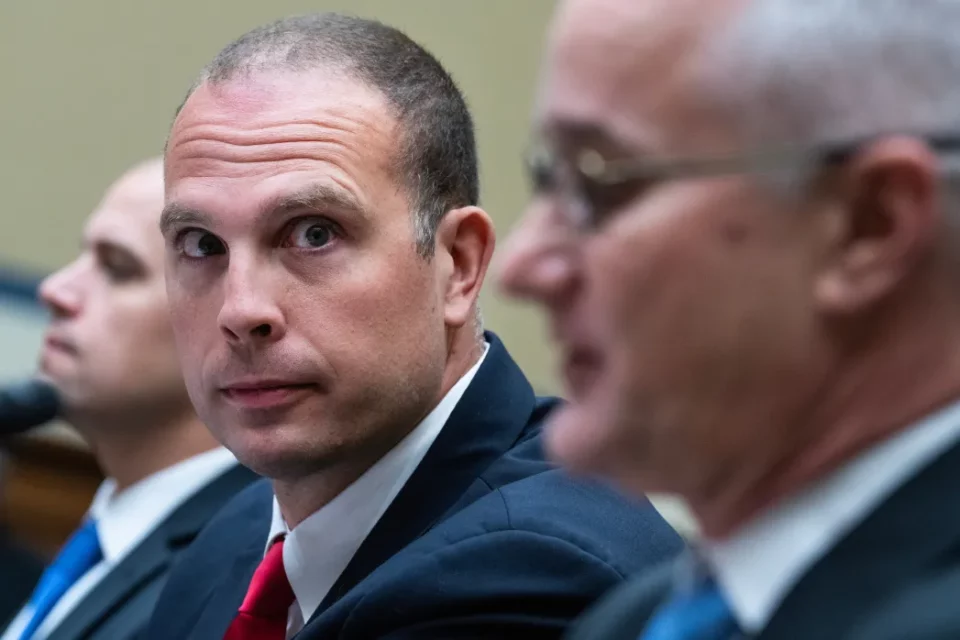
“What gives? Why are people so eager to believe wild tales despite a lack of hard, clear evidence?”
A growing number of Americans believe extraterrestrial beings are behind unidentified flying object (UFO) sightings. According to YouGov, in 1996, only 20% of Americans believed UFOs were aliens. By 2022, the number jumped to 34%. With the recent UFO hearings before a House Oversight subcommittee, this number will undoubtedly increase further.
All the while, true skeptics of alien visitation have not budged an inch. They maintain that, despite the Netflix documentaries and newspaper headlines about aliens, there still is no real evidence of aliens on Earth. There are grainy photographs, mysterious government programs, and credible-seeming government personnel who claim to have seen or heard things, but there is still no hard evidence. None.
Every time a new flare-up of public interest in aliens occurs, the skeptic Michael Shermer will inevitably post a quick retort, something in the spirit of: “Just show us the spacecraft & aliens. Please, prove my skepticism wrong!” Elon Musk, who presumably would know something on this topic as the owner of SpaceX and Starlink, is equally unmoved on this topic, saying simply, “I’ve seen no evidence of aliens.”
Unsurprisingly, skeptics also remain unconvinced by claims of the existence of Bigfoot and the Loch Ness Monster. These are other stories driven by grainy photos and witness testimony. Yet, similar to aliens, belief in the Bigfoot and the Loch Ness Monster is similarly on the rise in recent years.
What gives? Why are people so eager to believe wild tales despite a lack of hard, clear evidence? Plenty of explanations can be offered. An easy explanation is that the Internet and social media help boost speculative theories. Expansive documentaries on Netflix and Hulu also give these theories massive exposure and an air of legitimacy. And, of course, in the case of the aliens, there are the recent Congressional hearings.
At a more fundamental level, these fantastic beliefs can be tied to the crisis in meaning. In 2017, a study found a link between the desire to find meaning in life and the belief that UFOs are aliens visiting from another world. According to a summary of the study published in PsyPost:
“A lack of meaning and a desire to find it were linked to greater belief in aliens and experimentally heightening the need for meaning increased paranormal alien beliefs. The study also found that atheists and agnostics reported greater belief in aliens, which was, in turn, associated with a lack of meaning.”
Studies of this variety, which rely on survey data from undergraduates, should always be taken with a grain of salt. At best, the study points to a correlation that might be due to other variables. Still, it is easy to understand the logic behind the results. People who have a strong sense of meaning and purpose will not necessarily get much personal satisfaction from knowing whether or not aliens are here on Earth. In fact, if one’s meaning is derived from religion, then there may be religious grounds for being skeptical about purported alien visitations. But for someone who lacks a sense of purpose, the idea that aliens are watching us from the stars can add an exciting new dimension to what it means to be alive.
Caveats aside, the 2017 study now feels incredibly prescient. Since 2017, the crisis in meaning has risen in parallel with the rise in the belief in alien visitation. Traditionally, people have achieved a sense of meaning largely from family, religion, and work. In a 2017 poll by Pew, 69% of Americans mentioned family as a source of meaning, and 20% mentioned the importance of their spouse or partner. In a comparable Pew survey from 2021, Americans mentioned family only 49% of the time, and the mention of a spouse or partner dropped dramatically to 9%. It is a similar story for religion, which fell from 20% to 15%, as well as for work, which fell from 24% to 17%. None of this is surprising, given that fewer people are getting/staying married and having children; people are leaving religion by the masses; and one in five Americans say that their job is meaningless.
In place of these traditional sources of meaning, Pew reports that “Americans have become more likely to mention society as a source of their meaning in life, but much of this emphasis is negative.” In this context, “society” can mean “one’s local area” or the United States, the government, or social services.
In the Pew data, there is one source of meaning conspicuously missing: belief in aliens. Admittedly, it is impossible to write this with a straight face. It does read as mildly absurd that someone would replace the sense of meaning they received from their religion, family, or work with a sense of meaning found in belief in aliens. But we do, in fact, find ourselves in the golden age of conspiratorial thinking. (Although evidence for this is lacking, the perception of 73% of Americans is that conspiracies are currently out of control.) And we also live in the golden age of the religification of social and political causes, from Wokeism to Trumpism.
It may not be enough to be a skeptic in order to avoid readily believing that aliens are among us. One might need to be a skeptic while maintaining a strong sense that life has meaning and purpose.
Peter Clarke is a freelance journalist in San Francisco. He can be found on Twitter @HeyPeterClarke











